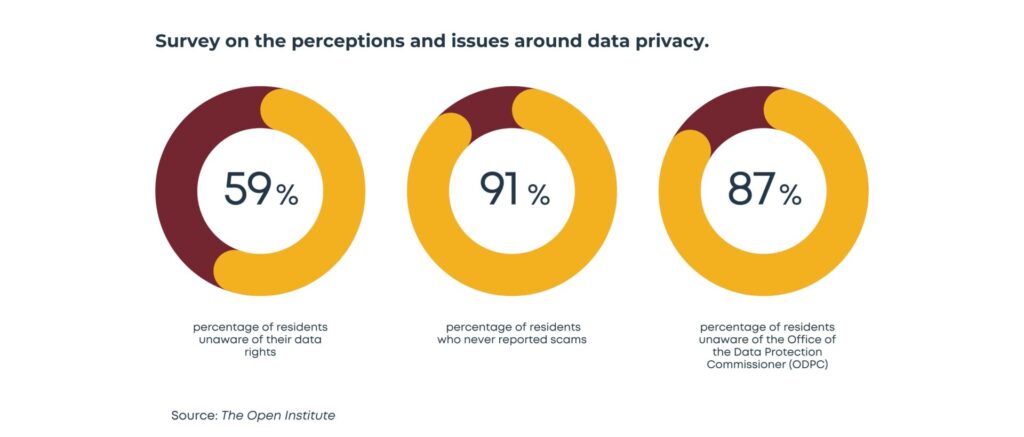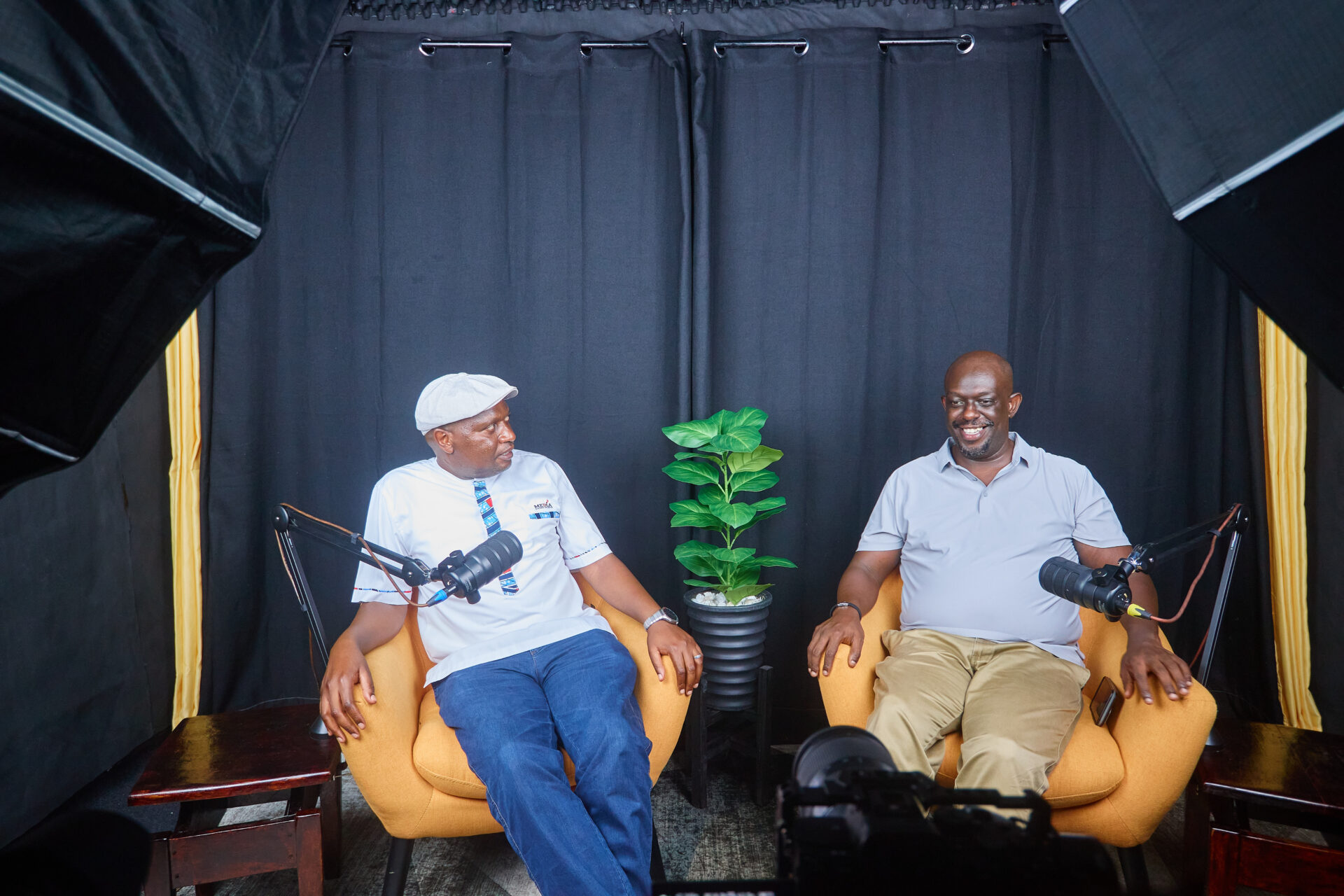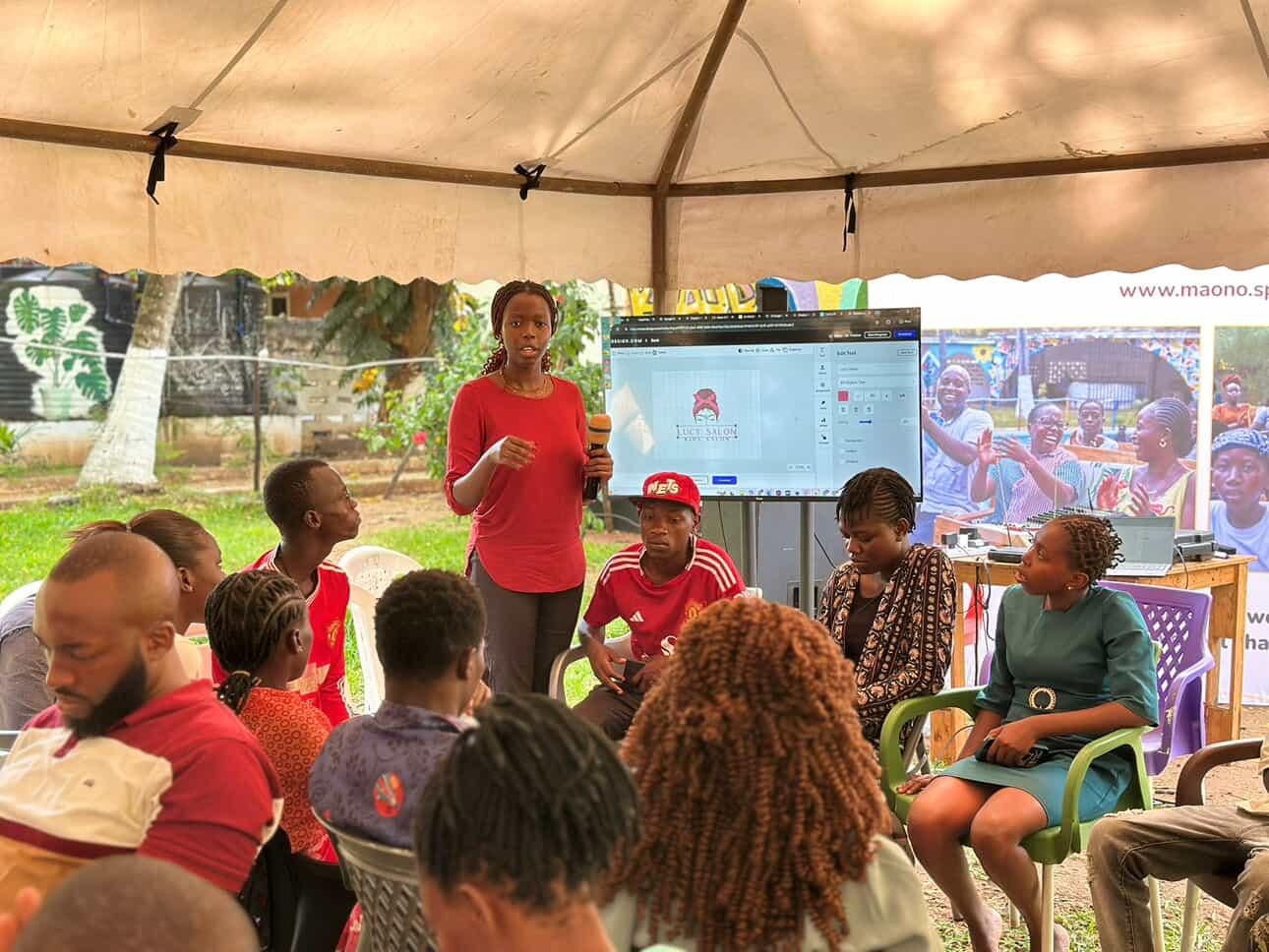In partnership with Amnesty International, we embarked on an ambitious journey to strengthen data governance in Kenya and across East Africa. Central to this mission has been the #FichaUchi Campaign, a multi-phase initiative aimed at raising awareness about data privacy and protection in East Africa. From its inception in 2021 the campaign has evolved significantly. Today, we share the milestones, challenges, and invaluable lessons learned along the way.
#FichaUchi Goes Digital (2021)
The #FichaUchi awareness campaign ran its first phase in 2021. Ficha Uchi is Swahili for “hide your nakedness”, a hashtag that was carefully chosen so that it is not only catchy but also impactful in the way in which most citizens, particularly the youth, could relate to their data both online and offline. #FichaUchi demystified the data protection concept by providing factual, age-appropriate information about data privacy and protection.
In 2021, the campaign reached a total of 80 million people, and the second phase of the campaign reached 112 million digitally. Arising out of the first phase of the campaign, there was a need to take the conversation further by engaging with citizens offline and understand their context better. Through radio shows and focus group discussions, more engagement and nuance was added to the conversation in Ficha Uchi 2.0.
FichaUchi 2.0: Your Data, Your Rights
Building on the success of the first phase, over the course of four months, we went on a journey to raise awareness about data protection, educate individuals about their rights as data subjects, and tackle common data-related challenges faced by Kenyan citizens. Our campaign encompassed various strategies, including a digital campaign, community radio talk shows and on-the-ground research through focus group discussions in 9 counties. Over a period of 4 months, the campaign reached 115.2 million people across social media platforms, a significantly higher impact than our first campaign. We saw much more engagement and awareness on data protection, particularly with the rise of cyber crime and scams online. There was generally more conversation on Kenyan social media platforms about issues regarding digital rights and personal data.
Phase Three: Regional Expansion to East Africa (2023)
Taking the campaign beyond Kenya, #FichaUchi East Africa targeted Tanzania and Uganda. This was a one-month pilot campaign, undertaken to test the reception in the two countries. It reached 1.1 million accounts, marking the first step towards a broader regional impact. The experience highlighted the importance of tailoring messages to fit diverse cultural contexts, ensuring they resonate more effectively with different audiences. We believe there is still much work to be done, and we look forward to having in-depth conversations at the upcoming East Africa Data Governance Conference on the 26th and 27th of February this year.
Phase Four: Localized Impact in Kilifi County (2024)
This has been the most personalised phase yet. #FichaUchi Kilifi County focused on community-level engagement through training, local partnerships, and cultural adaptation, aiming to tackle the unique challenges faced by residents in protecting their data. Here’s how we executed it:
To effectively reach all seven sub-counties in Kilifi County, we identified and trained six local changemakers, known as Data Champions. These individuals were selected for their community influence, experience, and reputation. A two-day intensive training by our Senior Programmes Officer Christine Ajulu equipped them with vital knowledge on data privacy and effective teaching methods, empowering them to spread awareness and educate their communities.
Why Local Changemakers?
- They understand cultural nuances and can communicate in relatable ways.
- Their trust within the community fosters openness and receptivity.
- Working with locals avoids dependency on external trainers and promotes sustainable knowledge dissemination.
We then partnered with these local Data Champions to conduct 12 community training sessions, reaching 359 residents, including bodaboda riders, women, and young people. Before each session, surveys revealed gaps in knowledge. To address these gaps, we used storytelling, role-playing, and relatable examples, making the sessions engaging and impactful. As a result, participants walked away better informed and equipped to protect their data.

We wanted to make sure our message reached as many people as possible, so we started by handing out 200 branded items with key messages on public transport—places people see every day. Radio was also a big part of our outreach, especially for rural communities. We teamed up with Lulu FM and SBS Radio to host weekly talk shows, where Data Champions led conversations, answered questions, and listened to people’s experiences. These shows reached around 750,000 listeners each week.
On top of that, we worked with social media influencers to create simple, relatable content, painted big murals to grab attention, and hit the streets for interviews to hear what people really think about data privacy.
Our Key findings!
From our work we identified several key challenges and insights regarding data protection and privacy in Kilifi County:
- Low Awareness Levels: Many people don’t know how to protect their data. Limited literacy and relying on others for services often lead them to unknowingly share sensitive information, putting them at risk.
- Poor Understanding of Consent: People often share their personal data without fully understanding what they’re agreeing to. In some cases, accepting small gifts or payments makes them less concerned about privacy.
- Cultural Practices Affect Privacy: Sharing personal information openly is common in the community, which increases the chances of identity theft and financial fraud.
- Fear of Reporting Scams: Many victims of scams don’t report them, either out of fear of being blamed or feeling embarrassed. This silence allows misuse of personal data to continue.
- Limited Awareness of the ODPC: Most people don’t know about the Office of the Data Protection Commissioner or how it can help protect their data rights, which highlights the need for more awareness.
- Social Media Can Help: Platforms like Facebook and TikTok, especially when used by relatable influencers, are great ways to reach younger, tech-savvy audiences.
- Messages Should Be Localized: Using familiar languages and cultural references helps people better understand and connect with data protection messages.
As we reflect on the journey of the #FichaUchi Campaign, it is clear that the need for robust data protection and privacy is urgent and undeniable. Our work across Kenya and East Africa has shown us the need for community engagement, cultural adaptation, and tailored communication in addressing the complex issue of data privacy. From training local changemakers in Kilifi County to expanding our reach across borders, we have made significant strides but,, there is still much work to be done.
As citizens, it is your responsibility to understand the risks you face and take the necessary steps to safeguard your personal data. Protecting our digital identities is a collective task. Governments must also step up, implementing policies that ensure data protection and creating an environment where citizens feel empowered and informed. The road ahead may be long, but with continued commitment and collaboration, we can create a safer digital future for all.













